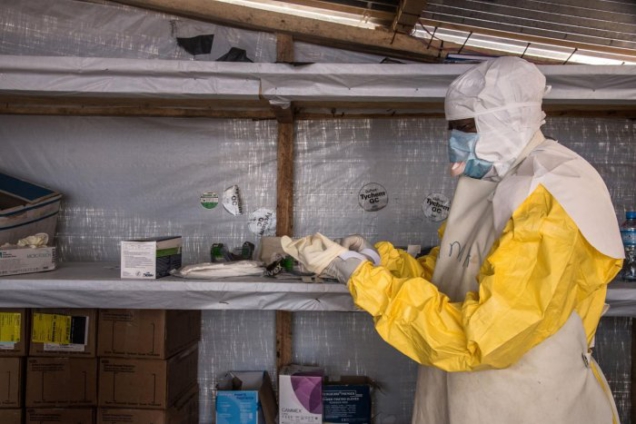The World Health Organisation (WHO) says it has detected a highly infectious and deadly viral disease that has the potential to spread far and wide.
WHO said the first patient identified in Southern Guinea has already died of the disease in a statement.
Marburg virus disease is said to be in the family of the Ebola Virus and has a case fatality rate of up to 88 per cent.
WHO said it has begun cross-border surveillance, with neighbouring countries put on alert.
This is the first time Marburg, a highly infectious disease that causes haemorrhagic fever, has been identified in Guinea and West Africa.
Marburg, which is in the same family as the virus that causes Ebola, was detected less than two months after Guinea declared an end to an Ebola outbreak that erupted earlier this year.
Samples taken from a now-deceased patient and tested by a field laboratory turned out positive for the Marburg virus.
The patient had sought treatment at a local clinic, where a medical investigation team had been dispatched to probe his worsening symptoms.
Gueckedou, where Marburg has been confirmed, is also the same region where cases of the 2021 Ebola outbreak in Guinea and the 2014–2016 West Africa outbreak were initially detected.
Efforts are underway to find the people who may have been in contact with the patient.
An initial team of 10 WHO experts, including epidemiologists and socio-anthropologists, is on the ground helping to investigate the case and supporting the national health authorities to step up emergency response swiftly.
Cross-border surveillance is also being enhanced to detect any cases, with neighbouring countries on alert quickly. In addition, the Ebola control systems in place in Guinea and neighbouring countries are proving crucial to the emergency response to the Marburg virus.
Marburg is transmitted to people from fruit bats and spreads among humans through direct contact with the bodily fluids of infected people, surfaces and materials.
Illness begins abruptly, with high fever, severe headache and malaise. Many patients develop severe haemorrhagic signs within seven days.
Case fatality rates have varied from 24% to 88% in past outbreaks depending on virus strain and case management.
Although there are no vaccines or antiviral treatments approved to treat the virus, supportive care – rehydration with oral or intravenous fluids – and treatment of specific symptoms improves survival.
A range of potential treatments, including blood products, immune therapies and drug therapies, are being evaluated.
Latest Stories
-
Ghanaian athletes in Côte D’voire for U-20 Championship
3 mins -
Made in Taadi must happen this year by hook or crook – Kofi Kinaata
17 mins -
Labour unions contemplate May 2 strike over unpaid Tier-2 pension dues
19 mins -
Sedina Tamakloe’s arrest: MoF, MASLOC board can’t be left off the hook – Analyst
32 mins -
Three JHS boys arrested for allegedly gang-defiling 15-year-old colleague
38 mins -
Today’s front pages: Friday, April 19, 2024
48 mins -
Magnus RexDanquah : ‘Breaking the Eight’ – The Greatest Scam Ever since Ackah Blay Miezah’s Gold Deposits claim
56 mins -
You cannot advise a fool – Kofi Kinaata
3 hours -
9-month-old baby dead after father bathed her and mother in acid
4 hours -
Christopher Adu Boahen to be buried on April 25
4 hours -
Ghana will achieve universal access to electricity by end of the year – Finance Minister
4 hours -
Ghana is set to procure one million revenue-efficient meters
4 hours -
National Peace Council raises concern over hate speech, insults in the media
4 hours -
I will fight corruption ruthlessly – Alan Kyerematen
4 hours -
Akufo-Addo pledges to prioritise the welfare of cocoa farmers
4 hours

